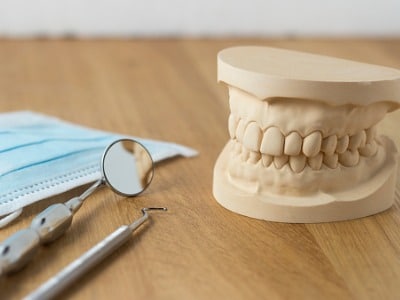
From a dental health perspective, having gaps in your mouth can affect the health and functioning of your teeth. Gaps mean that neighboring teeth won’t have the right support to keep them in their correct positions. Additionally, from a cosmetic perspective, gaps in the front teeth can affect the appearance of one’s smile. If you have hypodontia, it is likely you will need some kind of treatment to either reinforce the surrounding teeth or to deal with cosmetic concerns. Fortunately, orthodontics can be a great solution for those with hypodontia.
Some gaps in teeth will respond well to orthodontic treatments. Braces can move teeth around in the mouth to fill in gaps or reduce spaces in between teeth. However, it is important to note that while braces work for some hypodontia problems, they are not always a solution if the gap is too big or if you have multiple gaps in the same part of the mouth. If you have questions about braces and how we can help treat hypodontia, please contact our office.


